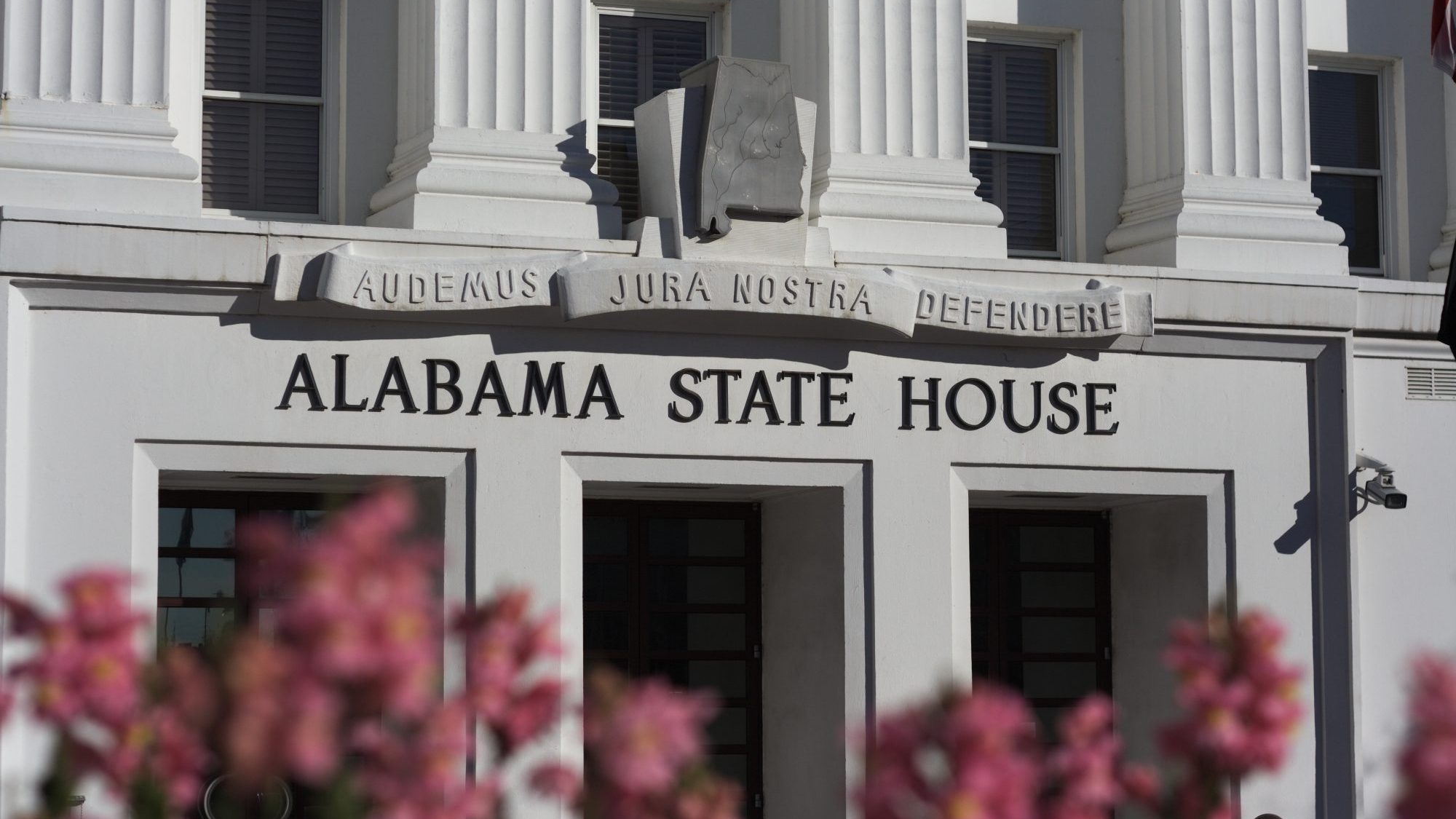By Brandon Moseley
Alabama Political Reporter
The 2017 Alabama Legislative Session is over, and these are some key points to take away.
The biggest loser, by far, was former Governor Robert Bentley. The Legislature got an awful lot of help from this newer, stronger, bolder version of the Alabama Ethics Commission. But, it was evident that Bentley was going to be impeached and removed once Special Counsel Jack Sharman released his report. Bentley resigned halfway through the first day of the House Judiciary Committee hearings. If the House and Senate had to waste weeks on his impeachment, given the 30-day Legislative meeting limit, the Session would have been a disaster.
Judiciary Committee Chairman Mike Jones (R-Andalusia), State Representative Ed Henry (R-Hartselle), who introduced the articles of impeachment against Bentley in 2016, and State Auditor Jim Zeigler (R), who championed the case for impeaching Bentley and brought the case before the Ethics Commission, were all winners. Of course, the biggest winner of all was Kay Ivey (R) who achieved her dream of being Governor thanks to Bentley’s mistakes.
The Certified Professional Midwives (CPMs) have brought a bill to Montgomery every year for the last fourteen years. Unfortunately, the powerful special interests managed to squash their efforts every time.
Finally, this year, having built enough momentum, the Midwives were able, not only to get the Legalization to the floor of one House, but to both, and have it sent to the Governor’s desk for her signature. However, it appears that special interests or whoever was advising her killed the bill by amending it, and sending it back to the Legislature; but it was too late for them to address the Governor’s conditional veto.
The Midwives will have to bring their Legislation back next year and start all over again; but the doctors, hospitals and the overpaid army of professional lobbyists who serve them, will certainly be back too, and Alabama’s infant mortality will likely remain among the worst in the nation.
The Memorials Preservation Act was passed and sent to the Governor. Confederate history advocates were incensed when Gov. Bentley took the Confederate flags down from the Confederate Veterans Memorial and the First Whitehouse of the Confederacy. A wave of anti-south hysteria is sweeping the country with tremendous effect, especially in New Orleans where landmarks were destroyed by the very city government that was entrusted by previous generations to be responsible for their care. Governor John Bel Edwards (D) refused to intervene.
The Alabama Legislature, however, did take a stand passing Legislation protecting monuments that are 20 years or older. Critics led by House Democrats thought the Legislation was an unnecessary mandate on local governments and some accused the Republican supermajority of being racist, but both the House and Senate Republican Caucuses had promised voters that this Legislation would pass, and it did. Supporters are now waiting on Gov. Kay Ivey to sign the bill.
Alabama is a pro-Second Amendment State, but gun owners’ efforts to make Alabama a Constitutional Carry State failed in this Session. While Senator Gerald Allen’s bill, SB24, got through the Senate, Speaker of the House Mac McCutcheon assigned it to Representative Allen Treadaway’s Homeland Security and Public Safety Committee, where Chairman Treadaway assigned SB24 to a subcommittee and buried it there.
The powerful Business Council of Alabama (BCA), for the second year in a row, championed a bill to dramatically increase fuel taxes to pay for more road repair and construction projects. However, just like last year, fiscal conservatives opposed and defeated the plan, which would have financed up to $2 billion in new bond debt without a vote of the people. The program was pulled off the floor of the House when it was evident that bipartisan opposition would easily defeat it in the House. Sponsors worry that if President Trump’s (R) massive trillion-dollar infrastructure plan were to pass the Congress, the Alabama Department of Transportation would not have the money for matching funds to participate. That potentiality appears increasingly unlikely as Congress is bogged down in its own scandal investigations instead of debating and passing the Trump Legislative agenda.
Similarly, another massive bond issue to build four new prisons failed to be introduced on the floor of the Alabama House of Representatives. For the second year, the Alabama Department of Corrections (ADOC) Commissioner Jeff Dunn came to the Legislature with Governor Bentley’s Great State 2020 plan to borrow $800 million (that eventually ballooned to $848 million) to build four new mega-prisons, while closing as many as fifteen existing prisons. A broad House coalition of conservative Republicans and liberal Democrats opposed the controversial plan, which never came to the House floor. The failure to address Alabama’s long-term prison overcrowding situation some fear could lead to the federal courts becoming involved and the state being ordered to build new prisons or release thousands of felons back into Alabama communities. The Southern Poverty Law Center is suing the State claiming that prisoners are not getting adequate health and mental healthcare.
The Legislature did pass Legislation requiring insurance companies to pay for Autism therapy for children. The Legislation was advocated by Autism advocates from across the State. Senator Trip Pittman (R-Montrose) warned that the bill could potentially cause problems in the State’s General Fund as over half of the children in Alabama get their healthcare insurance from the children’s health insurance program paid for by a Federal/State Partnership and administered by Blue Cross Blue Shield of Alabama.
Ballot access legislation, sponsored by Representative Christopher John England (D-Tuscaloosa) that would have decreased the number of eligible voters in the district involved to just one percent was defeated in committee over fears that third party candidacies could cause confusion in this year’s special election for US Senate. A Federal court has already ruled against Alabama on this issue and could ultimately weigh in on this topic.
Some education proposals were floated in this Session. Repeal of Common Core Legislation did not advance far in this Session. The technology bill to give every child in the State access to tablets passed both Houses of the Legislature but, differences between the House and Senate versions of the bill were not resolved before the Session ended effectively killing it for the sixth year in a row. Representative Terri Collins’ (R-Decatur) Legislation to make it easier to establish a charter school in Alabama was defeated on the House floor. Similarly, Sen. Del Marsh’s (R-Anniston) bill to expand the donor base for the Accountability Act, which gives scholarships to children in Alabama’s worst public schools to attend a private school, failed in the Legislature. The Legislature did increase the number of 4th thru 6th-grade teachers and the number of pre-K classrooms. The Education Trust Fund Budget is the largest in the history of the State. Higher education, however, was funded at 2017 Fiscal Year levels, because Legislators feel that the need is greater in K-12 where Alabama ranks among the worst performing public school systems in the country. Over the last 15 years, higher education has had to pass more of its costs to the students and their families in the form of higher tuition.
A bill that would have significantly expanded the powers of the DHR (State Department of Human Resources) over Church-run day care was narrowly defeated. Advocates argued that increasing the regulatory powers of the State was necessary for the children. Opponents questioned if there was any legitimate need for the Legislation and if it violated the freedoms and liberties of the Churches and the families that they serve.
Speaker Mac McCutcheon (R-Monrovia) maintained a much warmer, more cordial relationship with Democratic lawmakers than his predecessor, Mike Hubbard. A lot of that goodwill was lost however over the redistricting plans that were passed out of committee and then forced through the Legislature; largely along party lines. The Federal courts had ordered the redistricting after rejecting some districts in the 2012 plan. The Black Legislative Caucus was promising to take that program back to the courts and to ask for the Federal judge to appoint a special master to write all the 2018 Legislative districts.
The General Fund is primarily level funded at 2017 levels. Mental health and prisons both could be potential causes for concern giving pending litigation. Alabama Medicaid is costing the State more than any other General Fund agency and could face its own budget problems depending on what sort of healthcare reform Legislation finally passes out of the Congress. Former Gov. Bentley was lobbying the Trump Administration and the Congress for block granting the Medicaid dollars. That could potentially relieve a lot of budget pressure on the State, it could also cost some Alabamians their access to healthcare depending on how that was implemented. If Congress goes back to an 80:20 split on the children’s health insurance program, which could leave the State scrambling to come up with more dollars for existing Medicaid services. There appears to be no serious move towards expanding Medicaid.
A Special Session is a possibility; but at this point, no one knows whether the greatest need will be: roads, prisons, mental health or Medicaid.



















































